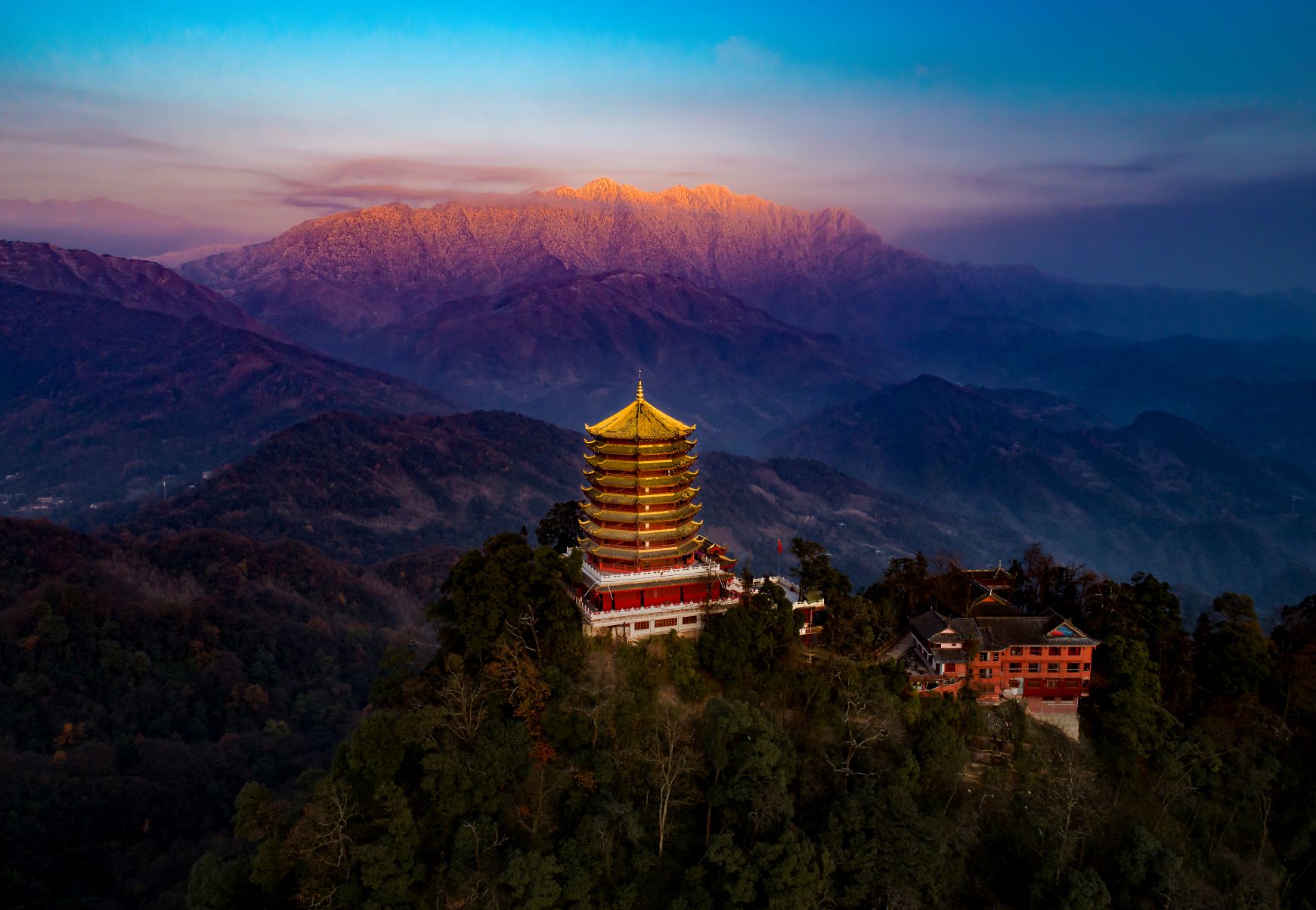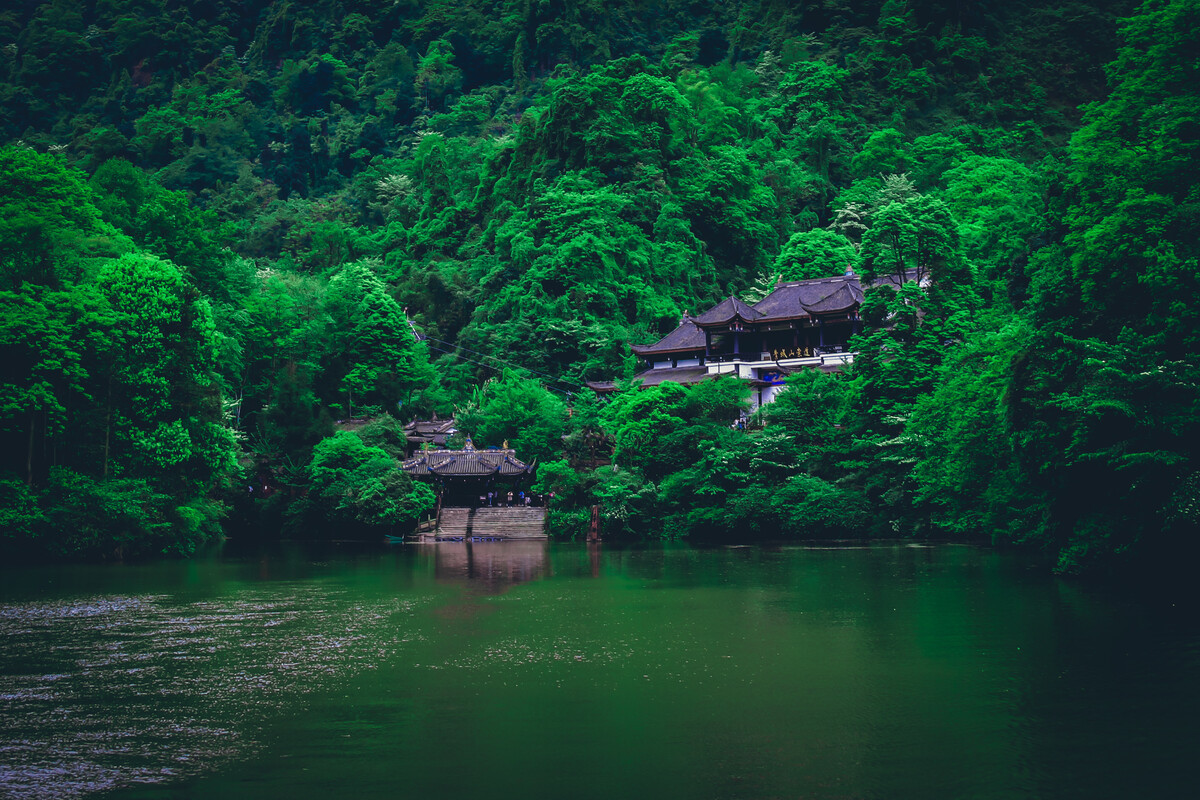
Perched atop the Chengdu Plain, Qingcheng Mountain rises like a celestial sentinel, its emerald peaks shrouded in mist and ancient forests. Known as the “Most Secluded Place Under Heaven,” this UNESCO World Heritage Site is a pilgrimage destination for Taoists and nature enthusiasts alike. With its harmonious blend of mist-shrouded temples, rugged trails, and vegetarian cuisine, Qingcheng offers a serene escape into China’s spiritual and natural heritage.
Qingcheng’s history stretches back over 1,800 years, with its origins tied to Zhang Daoling, the founder of the Celestial Masters Sect of Taoism in the 2nd century CE. Legend says Zhang meditated here, achieving enlightenment and establishing the mountain as a sacred Taoist retreat. Over dynasties, monks carved temples into cliffs and built stone paths, creating a labyrinth of spiritual sites.
The mountain’s soul lies in Qingyang Palace, one of China’s oldest and most revered Taoist temples. Built during the Tang Dynasty (618–907 CE), its vermilion walls and golden roofs contrast with the surrounding greenery. Inside, visitors find ancient statues of deities, intricate carvings, and the Mingfeng Pavilion, where Taoist rituals and celestial observations were once conducted.
Qingcheng’s main peak, Yunhai Peak, offers breathtaking vistas of swirling clouds and terraced valleys below. The mountain’s network of trails—some steep and winding, others peaceful and shaded—leads to hidden temples, stone bridges, and tranquil pools. One iconic spot is the Sword Gate, a narrow pass where cliffs rise sheer from the ground, symbolizing the mountain’s spiritual guardianship.
For pilgrims and hikers, the 1,000-Step Staircase is a challenging but rewarding climb to the summit. Along the way, stone tablets and inscriptions recount tales of immortals and scholars who once wandered these paths.
Qingcheng’s ecosystems are as sacred as its temples. Ancient bamboo forests, alpine meadows, and cascading waterfalls create a habitat for rare flora and fauna, including the endangered Sichuan takin. The Moonlight Cave and Golden Turtle Pool are nestled within lush groves, offering secluded spots for meditation and reflection.
The mountain’s Taoist vegetarian cuisine is a unique culinary experience, reflecting the sect’s principle of harmony with nature. Dishes like qingzheng dishes (steamed vegetables with delicate spices) and mung bean soup are served in temples and vegetarian restaurants, emphasizing simplicity and purity.
Practical Insights for Visitors
- Timing: Visit spring (March–May) or autumn (September–November) for clear skies and fewer crowds. Cloud seas are most likely after rain or dawn.
- Transportation: Take Subway Line 2 to Qingyang Palace Station and transfer to a bus or taxi (about 1 hour). A cable car (¥80–¥120 one-way) ascends to Yunhai Peak.
- Entry: Free to hike; temple fees range from ¥10–¥30.
- Guided Tours: English-speaking guides are available for ¥200–¥300 per group.
- Accommodation: Stay in nearby Chengdu or at mountain guesthouses for a rustic experience.

Qingcheng Mountain is more than a scenic destination—it’s a living testament to Taoist philosophy, where every rock and temple whispers ancient wisdom. As pilgrims and travelers alike walk its paths, they are reminded of humanity’s quest for balance between nature and spirituality. In a world of modernity, Qingcheng offers a timeless sanctuary where the soul can rest and reconnect with the cosmos.
Come to Qingcheng, where mist-cloaked peaks meet chanting monks, and every step brings you closer to the essence of dao—the eternal way.


